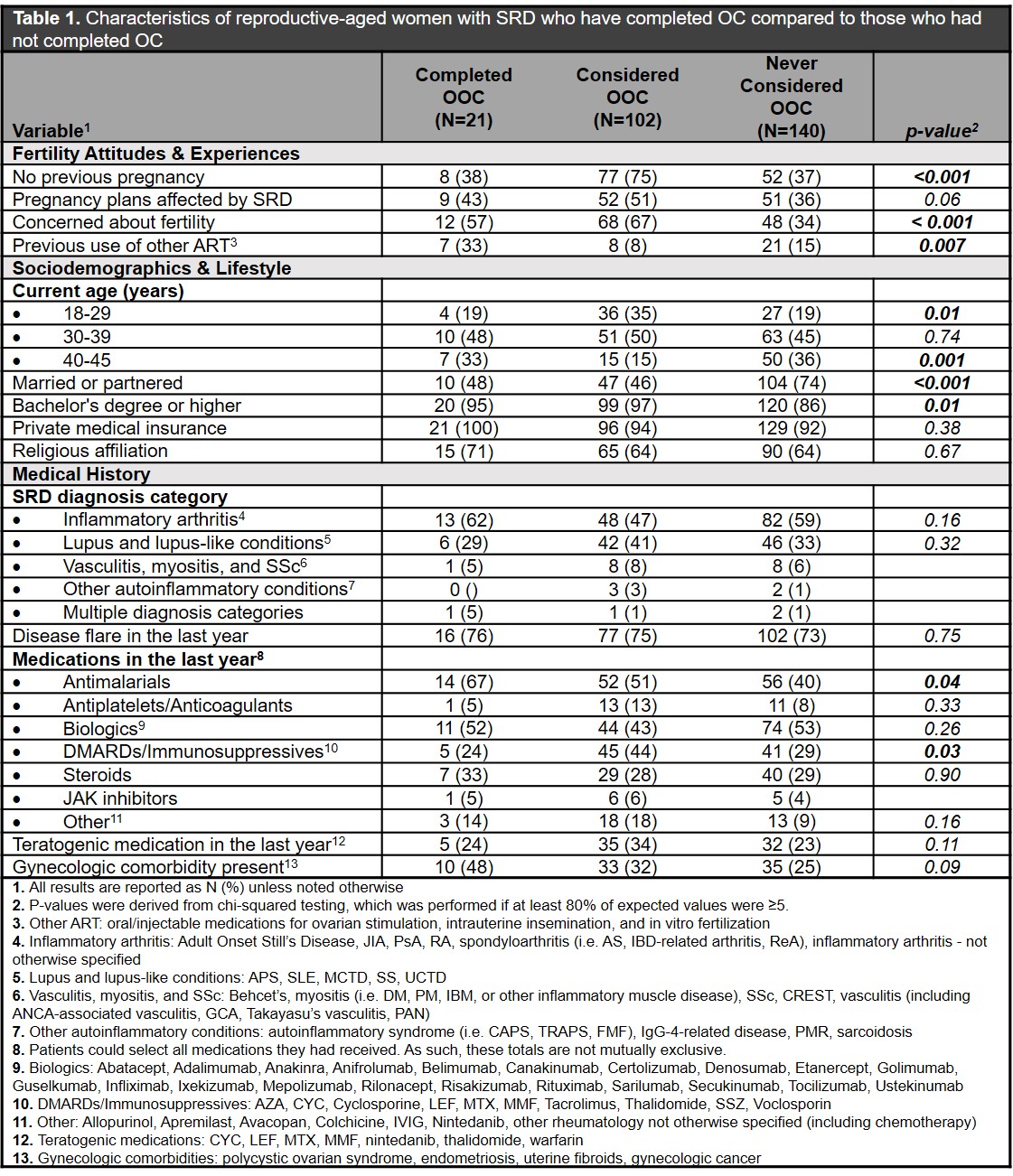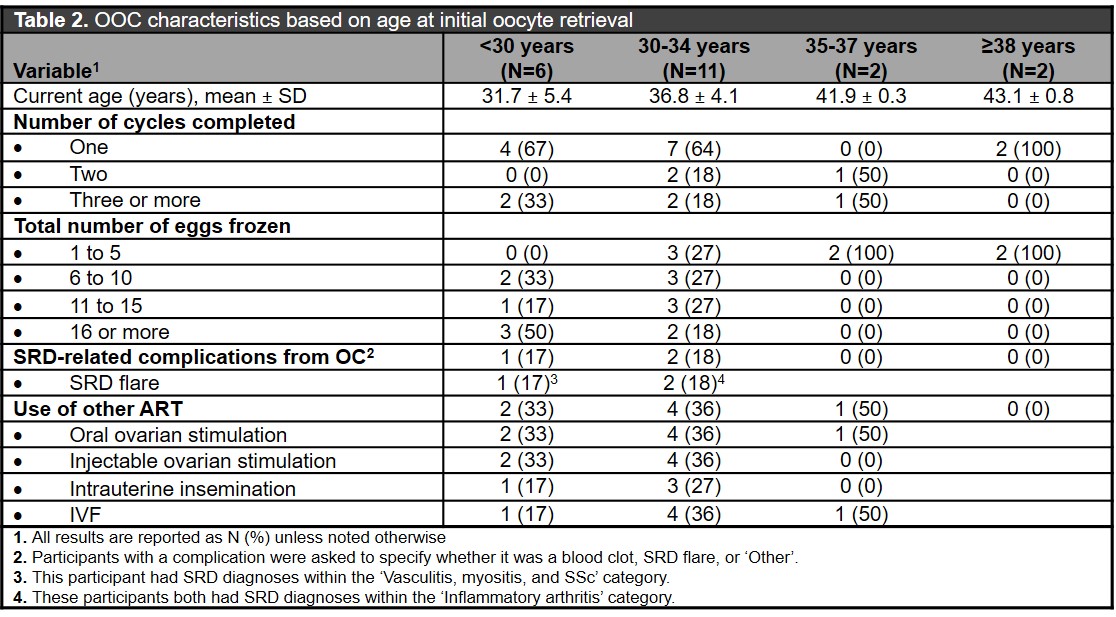Session Information
Date: Monday, November 13, 2023
Title: (1345–1364) Reproductive Issues in Rheumatic Disorders Poster II
Session Type: Poster Session B
Session Time: 9:00AM-11:00AM
Background/Purpose: Systemic rheumatic disease (SRD) may be associated with decreased fertility. Advances in the safety and efficacy of oocyte cryopreservation (OOC) and other assisted reproductive technologies (ART) make these therapies increasingly appealing. However, few studies have assessed ART utilization among women with SRD. Here, we evaluate how sociodemographic factors and medical history influence OOC experiences and attitudes towards ART among women with SRD.
Methods: We enrolled women ages 18-65 seen ≥2 times by a Hospital for Special Surgery rheumatologist from 2020-2022 in the Rheumatology Women’s Reproductive Health and Wellness Cohort; cohort enrollment is ongoing. We included women aged 18-45 years with a self-reported SRD in this interim analysis. Using descriptive statistics, we assessed how sociodemographic factors, reproductive history, SRD, and rheumatology medications influence attitudes towards OOC. We also detailed the experiences of women who have undergone OOC, and we explored the relative importance of factors affecting decisions to use ART among women without previous fertility issues.
Results: Out of 815 cohort participants, 641 (79%) provided information on fertility; 265 were reproductive-aged with SRD. Of these, 21 (7.9%) had done OOC, and an additional 102 (38.5%) had contemplated OOC (Table 1). Openness to OOC was associated with no previous pregnancy (p< 0.01), greater infertility concern (p< 0.01), age< 30 (p=0.01), lack of a spouse/partner (p< 0.01), bachelor’s degree or higher (p=0.01), and use of antimalarials (p=0.04) or DMARDs/immunosuppressives (p=0.03). Previous use of other ART and age ≥40 were associated with either completing OOC or never having considered OOC (both p< 0.01). Of participants who had undergone OOC, most (81%) did so before 35 years of age (Table 2). Three women had complications related to OOC, all reporting SRD flares. For those who did not have fertility issues, 112 (64%) reported that, if necessary, they would consider ART only if their rheumatologist felt it was safe (Figure 1). This was the third most important factor influencing consideration of ART, preceded only by the participant or partner experiencing fertility problems.
Conclusion: Almost half of women with SRD in our cohort have either undergone or considered OOC for fertility preservation. Attitudes towards OOC were associated with pregnancy history, fertility concern, experience with other ART, age, marital status, education, and rheumatologic medications. Among women who have completed OOC, most initiated their cycles before age 35. Receiving their rheumatologists’ approval regarding the safety of ART is an important factor for many women who have not pursued ART. This analysis provides one of the first reports of OOC use in SRD. Our results highlight the significant role of SRD-related factors on attitudes towards and experiences with ART in women with SRD.
To cite this abstract in AMA style:
Adurty S, Masto L, Smole A, Siegel C, Lieber S, Levine J, Stamm B, Mandl L, Lockshin M, Barbhaiya M, Sammaritano L. Experiences and Attitudes Related to Assisted Reproductive Technologies Among Women with Systemic Rheumatic Disease [abstract]. Arthritis Rheumatol. 2023; 75 (suppl 9). https://acrabstracts.org/abstract/experiences-and-attitudes-related-to-assisted-reproductive-technologies-among-women-with-systemic-rheumatic-disease/. Accessed .« Back to ACR Convergence 2023
ACR Meeting Abstracts - https://acrabstracts.org/abstract/experiences-and-attitudes-related-to-assisted-reproductive-technologies-among-women-with-systemic-rheumatic-disease/



